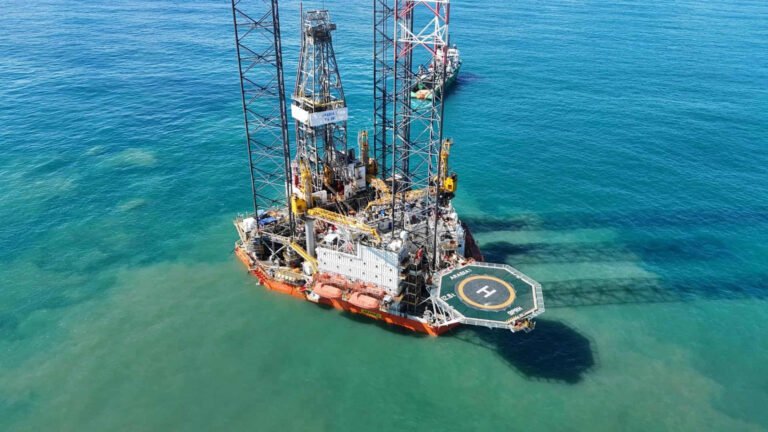Petrobras Commences Well Decommissioning Activities with Borr Drilling’s Jack-Up Rig in Brazil
Brazilian state-owned energy giant Petrobras has disclosed the arrival of a jack-up rig, owned by Borr Drilling, a UK-headquartered offshore drilling contractor, in Brazilian waters, where it will undertake well decommissioning activities at oil and gas assets off the coast of Brazil.
After Borr Drilling’s Arabia I jack-up rig won a four-year contract with Petrobras in Brazil, with a four-year unpriced option, the work was slated to begin in Q1 2025. Petrobras confirmed the rig arrived on Sunday, April 13, in the Sergipe Basin for well decommissioning activities in the Guaricema field, located in shallow waters approximately 9 kilometers from the coast.
According to the Brazilian giant, these operations are part of its facilities decommissioning program in Sergipe, which foresees investments of around $1.7 billion in the region within the company’s Strategic and Business Plan for the period 2025 to 2029. The 2020-built Arabia I jack-up rig is of a Keppel FELS B Class design and can accommodate 150 people. With a maximum drilling depth of 30,000 feet (9.14 kilometers), the rig can work in water depths of 400 feet (about 122 meters).
With legs measuring almost 150 meters in height and weighing 12,700 tons, the self-elevating rig will perform intervention activities in oil and natural gas wells for their deactivation and capping. The initial campaign will last around seven months, with subsequent movement to other wells.
Moreover, Petrobras is committed to ensuring the safe and sustainable closure of its assets, meeting the industry’s most stringent environmental standards for the end-of-life process related to assets that have had their production permanently halted. The implementation of required stages depends on approval and monitoring by the competent agencies, such as the National Agency of Petroleum, Natural Gas and Biofuels (ANP), the Brazilian Navy, and IBAMA.
Carlos Castilho, Petrobras’ General Manager of Decommissioning Projects, commented: “Petrobras is advancing its decommissioning processes in the Sergipe Basin, a natural step for assets with more than 25 years of production in a mature industry such as Brazil’s oil and gas industry. All work is being conducted using the best techniques and in line with current regulations.”
The Brazilian titan is expected to decommission 26 production units in Sergipe, bringing opportunities to the industry and the local supply chain. The Sergipe Basin is said to be the country’s second-largest in terms of the volume of decommissioning investments, right after the Campos Basin. Petrobras’ operational unit in the region, headquartered in Aracaju, is dedicated to decommissioning operations in the Sergipe-Alagoas, Rio Grande do Norte, and Ceará Basins.
Petrobras’ sustainability and decarbonization efforts are exemplified by its recent carbon dioxide (CO2) reinjection achievement in the Santos Basin pre-salt layer, with 22 FPSO units capturing and reinjecting CO2 offshore Brazil.

